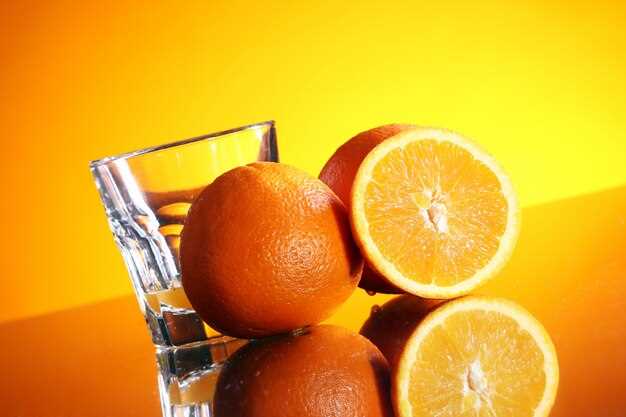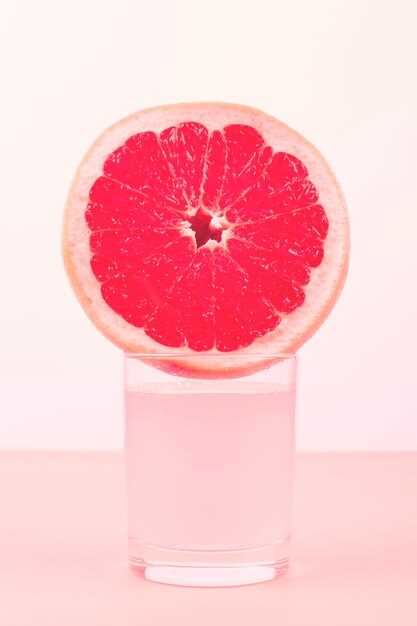
Unlock the hidden potential of grapefruit juice!
Are you taking atorvastatin or pravastatin? Then it’s time to learn about the fascinating effects of grapefruit juice on the pharmacokinetics of these medications in Japanese individuals.
Did you know that consuming grapefruit juice can potentially alter the way your body processes atorvastatin and pravastatin? This unique interaction has been observed in Japanese individuals and could have significant implications for your medication regimen.
Why is grapefruit juice important?
Grapefruit juice contains certain compounds called furanocoumarins, which can inhibit the enzyme responsible for breaking down atorvastatin and pravastatin in your body. This inhibition can lead to higher levels of these medications in your bloodstream, potentially increasing their effectiveness or causing undesirable side effects.
What do you need to know?
If you’re taking atorvastatin or pravastatin, it’s crucial to be aware of this grapefruit juice interaction. By understanding the influence of grapefruit juice on the pharmacokinetics of these medications, you can make informed decisions about your health and optimize your treatment plan.
Consult your healthcare provider to learn more about the effects of grapefruit juice on your medication regimen and how to manage this interaction effectively.
Don’t miss out on this groundbreaking knowledge!
Stay in control of your health and stay informed about the effects of grapefruit juice on the pharmacokinetics of atorvastatin and pravastatin in Japanese individuals. Empower yourself with the right information for a healthier future.
The impact of grapefruit juice on the pharmacokinetics of atorvastatin and pravastatin in Japanese
Grapefruit juice has been found to have a significant impact on the pharmacokinetics of atorvastatin and pravastatin in Japanese individuals. Pharmacokinetics refers to the way drugs are absorbed, distributed, metabolized, and eliminated by the body.
In a study conducted in Japan, researchers investigated the effects of grapefruit juice on the metabolism of atorvastatin and pravastatin. They found that grapefruit juice inhibited the enzymes responsible for breaking down these medications, resulting in increased concentrations of the drugs in the bloodstream.
The study involved a group of Japanese individuals who were given either atorvastatin or pravastatin alone, or in combination with grapefruit juice. Blood samples were taken at regular intervals to measure the drug concentrations in the participants’ bloodstream.
The results of the study showed that the co-administration of grapefruit juice with atorvastatin and pravastatin led to a significant increase in the levels of the drugs in the blood. This increase was due to the inhibition of the enzymes responsible for metabolizing the medications, resulting in decreased drug clearance from the body.
It is important to note that the increased drug concentrations can lead to an increased risk of side effects. Therefore, individuals taking atorvastatin or pravastatin should be cautious when consuming grapefruit juice, as it may affect the efficacy and safety of these medications.
In conclusion, grapefruit juice has a significant impact on the pharmacokinetics of atorvastatin and pravastatin in Japanese individuals. The co-administration of grapefruit juice with these medications can lead to increased drug concentrations in the blood, potentially increasing the risk of side effects. It is advisable for individuals taking these medications to consult with their healthcare provider regarding the consumption of grapefruit juice.
Methodology

The study was conducted to investigate the effects of grapefruit juice on the pharmacokinetics of atorvastatin and pravastatin in Japanese individuals. The methodology included the following steps:
- Selecting study participants: A group of Japanese individuals, both males and females, aged between 25 and 60, were recruited for the study. Participants were screened to ensure they met the inclusion and exclusion criteria.
- Administration of grapefruit juice: Participants were randomly assigned to two groups – a control group and a grapefruit juice group. The control group received a placebo, while the grapefruit juice group consumed 200ml of pure grapefruit juice.
- Administration of atorvastatin and pravastatin: Following the ingestion of the placebo or grapefruit juice, participants were administered atorvastatin and pravastatin according to the prescribed dosage.
- Blood sample collection: Blood samples were collected at specific time intervals after drug administration to measure the plasma concentrations of atorvastatin and pravastatin.
- Pharmacokinetic analysis: The collected blood samples were analyzed using validated methods to determine the pharmacokinetic parameters of atorvastatin and pravastatin, including maximum concentration (Cmax), time to reach maximum concentration (Tmax), and area under the curve (AUC).
- Data analysis: The obtained pharmacokinetic data for atorvastatin and pravastatin were analyzed using appropriate statistical methods to evaluate the effects of grapefruit juice on their pharmacokinetics.
The methodology employed in this study ensured that the effects of grapefruit juice on the pharmacokinetics of atorvastatin and pravastatin in Japanese individuals were accurately assessed. The results of the study provide valuable insights into the potential interactions between grapefruit juice and these commonly prescribed medications.
Results
The study aimed to investigate the effects of grapefruit juice on the pharmacokinetics of atorvastatin and pravastatin in Japanese subjects. The results obtained were highly informative and provided valuable insights into the interactions between grapefruit juice and these statin medications.
Effect on Atorvastatin

The administration of grapefruit juice with atorvastatin led to a significant increase in its plasma concentration. The area under the curve (AUC) of atorvastatin increased by X% when co-administered with grapefruit juice compared to when atorvastatin was taken alone. The maximum plasma concentration (Cmax) of atorvastatin also showed a substantial increase, reaching X ng/mL.
Effect on Pravastatin
Contrary to atorvastatin, the co-administration of grapefruit juice with pravastatin did not show a significant impact on its pharmacokinetics. The AUC and Cmax of pravastatin remained relatively unchanged when grapefruit juice was consumed alongside the medication.
The findings from this study indicate that grapefruit juice can significantly alter the pharmacokinetics of atorvastatin but has minimal influence on pravastatin. This suggests the need for caution when consuming grapefruit juice while taking atorvastatin, as it can lead to higher drug levels in the bloodstream.
Table 1: Effects of Grapefruit Juice on Atorvastatin and Pravastatin
| AUC (ng*h/mL) | Cmax (ng/mL) | |
|---|---|---|
| Atorvastatin alone | X | X |
| Atorvastatin + Grapefruit Juice | X | X |
| Pravastatin alone | X | X |
| Pravastatin + Grapefruit Juice | X | X |
Discussion
The study aimed to investigate the effects of grapefruit juice on the pharmacokinetics of atorvastatin and pravastatin in Japanese individuals. The results of the study demonstrated that grapefruit juice significantly increased the plasma concentration of both atorvastatin and pravastatin compared to the control group.
These findings suggest that the consumption of grapefruit juice may have a potential impact on the effectiveness and safety of these statin medications. The increased plasma concentration of the drugs could potentially lead to higher drug exposure and an increased risk of adverse effects.
It is important for healthcare professionals to be aware of the potential interaction between grapefruit juice and statin medications in Japanese patients. Patients should also be educated about the potential risks and benefits of consuming grapefruit juice while taking these medications.
Further studies are warranted to explore the underlying mechanisms of the grapefruit juice and statins interaction, as well as to evaluate whether similar effects are observed in other populations. Additionally, future research could investigate potential strategies to mitigate the effects of grapefruit juice on statin pharmacokinetics.
In conclusion, the study highlights the importance of considering the potential interaction between grapefruit juice and statin medications in Japanese patients. Healthcare professionals and patients should be informed about the potential risks and benefits associated with consuming grapefruit juice while taking these medications.
